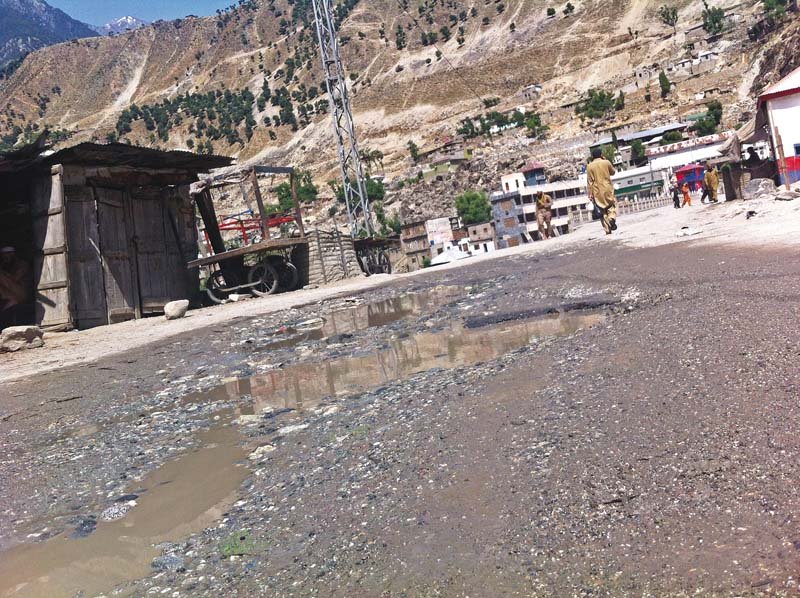
The highway is the only land route that connects Gilgit-Baltistan to the rest of the country down south, navigating through Khunjerab Pass at an elevation of over 4,000 metres. It is considered to be mapped along one of the paths of the Silk Route. Regular commuters who have to take goods to and from China have no other option but to embrace themselves for a tedious journey.
Malik Ahmed Taj, a tribal elder from Kohistan, reiterates the claims of locals, saying potholes have taken over the highway and the authorities have not spent a single penny for its maintenance for months. He adds the ditches create space for water to stagnate for days after it rains. Taj adds the deteriorating condition of KKH also prolongs the journey, as unlike on a smooth road, drivers have to be careful and drive slowly to avoid accidents.
Another tribal elder, Sadbar Khan says the name of KKH is no more Shahrah-e-Resham, in fact it has turned into “Shahrah-e-Sharam – a thoroughfare of embarrassment”. Sadbar says the highway was in a better condition when it was handled by Frontier Works Organisation. He blames NHA for turning KKH into what it is today.
The bumpy route causes mechanical issues in vehicles and public transport, prompting passengers to protest, demanding the repair of KKH every other day. Sadbar says the highway also passes through Komila, Dassu and Jeejal areas of Kohistan and there too it is in a poor state.
Published in The Express Tribune, May 18th, 2015.



1732263441-0/BeFunky-collage-(81)1732263441-0-165x106.webp)
1732263755-0/musk-(3)1732263755-0-165x106.webp)


1732258132-0/BeFunk_§_]__-(26)1732258132-0.jpg)
1732257537-0/Copy-of-Untitled-(64)1732257537-0-270x192.webp)
1726722687-0/Express-Tribune-Web-(9)1726722687-0-270x192.webp)







COMMENTS (1)
Comments are moderated and generally will be posted if they are on-topic and not abusive.
For more information, please see our Comments FAQ